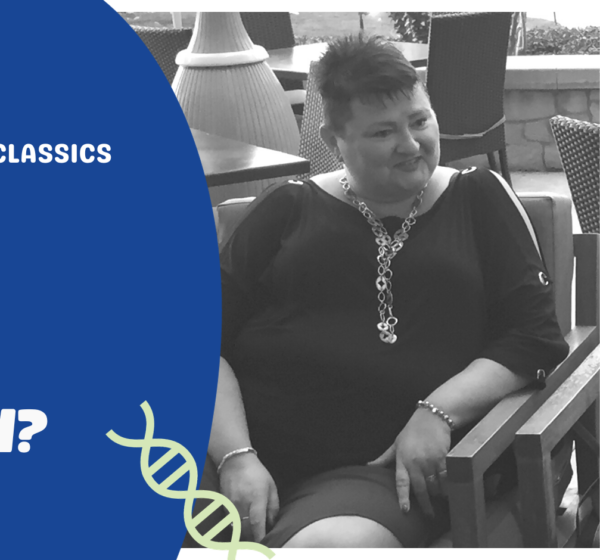Brigatinib (Alunbrig)
Non-small cell lung cancer that is ALK positive and has metastasized (spread to other parts of the body). It is used in adults.
Approved for: NSCLC
Biomarkers: ALK
FDA Approval Date: 07/05/2025
Used in: Targeted Therapy
About Lung Cancer | Diagnosis | Biomarkers
ALK-positive lung cancer
ALK-positive stands for Anaplastic Lymphoma Kinase Positive, or ALK+. It occurs in 1 out of 25 non-small-cell lung cancer (NSCLC) patients. Younger patients who have never smoked — usually 55 and under — are most likely to be diagnosed as being ALK+.
The ALK mutation is a genetic alteration of your lung cells’ DNA that causes these cells to grow abnormally and ultimately behave as cancer cells. As these cancer cells begin to grow in your lung, they can potentially spread to other parts of your body.
Among the many different mutations that can drive cancer to grow, the ALK mutation is one of the more treatable as it often responds dramatically to targeted therapies.
Hope With Answers Classics
In this video, Patient and Advocate Shelly Engfer-Triebenbach speaks with researcher Dr. Alice Shaw from Massachusetts General Hospital about ALK-positive lung cancer.
To find out if your lung cancer has this ALK+ mutation, you will need to have a sample of your cancer analyzed in a laboratory. This process is known as biomarker testing. To obtain a sample of the cancer, it is necessary to have a biopsy, typically obtained either with a needle or a small surgical procedure.
Liquid biopsies are simple blood tests that look for circulating cancer cells in your bloodstream. These blood tests are showing promise as less-invasive tests for various points along a lung cancer journey. Currently, liquid biopsies are not used to diagnose lung cancer, but researchers are working to find diagnostic tools, including liquid biopsies, to detect lung cancer in a non-invasive way. Currently, the best way is to test lung cancer is from a biopsy.
NCI-Designated Comprehensive Cancer Centers and other academic centers are excellent choices for and have experience in comprehensive biomarker testing. You can also have the testing done by a commercial lab recommended by your physician.

Hope With Answers Classics
Once it is confirmed that your lung cancer tests positive for the ALK mutation, there are many treatment options in addition to targeted therapy.

Hope With Answers Classics
If your ALK+ treatment stops working, is there a second-line treatment? Fortunately, there are multiple options for patients with ALK+ lung cancer.

Knowing Your Biomarker
Dr Sydney Barned, a physician living with lung cancer, explains biomarkers and how identifying her biomarker led to a treatment that has her taking a daily pill that is a targeted therapies for her ALK+ lung cancer.
ALK-positive lung cancer refers to a specific type of non-small cell lung cancer (NSCLC) that has a mutation in the ALK gene. Fortunately, there are targeted treatments available for patients with ALK-positive lung cancer. These treatments, known as ALK inhibitors, work by specifically targeting and blocking the activity of the abnormal ALK protein, thereby inhibiting the growth and spread of cancer cells. Some commonly used ALK inhibitors include crizotinib, ceritinib, alectinib, brigatinib, and lorlatinib. These targeted therapies have shown promising results in improving outcomes for patients with ALK-positive lung cancer, offering a more personalized and effective treatment approach. It is important for patients to work closely with their healthcare team to determine the most suitable treatment options based on their individual circumstances and genetic profile.
For ALK-Positive lung cancer, drugs known as “Tyrosine Kinase Inhibitors (TKI)” or “ALK inhibitors” are often very effecitve. These drugs target your ALK+ mutation and stop your cancer from growing and spreading.
Immunotherapy is a very effective treatment option that uses the body’s own immune response to fight the cancer without damaging healthy cells.
Chemotherapy for lung cancer treatment uses a drug (or a combination of drugs) that employs cell-killing medications (cytotoxic) to attack cancer cells.
Radiation therapy slows or stops tumor growth by damaging the DNA and stops cancer cells from dividing and growing. In many cases, radiation therapy kills all of the cancer cells, thus shrinking or eliminating tumors.
If your lung cancer is in an early stage, you may be a candidate for surgery to have the lung cancer completely removed.
Non-small cell lung cancer that is ALK positive and has metastasized (spread to other parts of the body). It is used in adults.
Approved for: NSCLC
Biomarkers: ALK
FDA Approval Date: 07/05/2025
Used in: Targeted Therapy
Non-small cell lung cancer that has metastasized. It is used:
With erlotinib hydrochloride as first-line therapy in patients whose disease has certain mutations in the EGFR gene. With docetaxel in patients whose disease has gotten worse during or after treatment with platinum chemotherapy. For patients whose disease has a mutation in the EGFR gene or ALK gene, ramucirumab is used if their disease has gotten worse after treatment with FDA-approved therapy for these mutations.
Approved for: NSCLC
Biomarkers: ALK, EGFR
FDA Approval Date: 07/05/2025
Used in: Targeted Therapy
Non-small cell lung cancer that is ALK-positive and has metastasized (spread to other parts of the body).
FDA approved alectinib (Alecensa) for people with non-small cell lung cancer (NSCLC) who have ALK-positive tumors that can be removed with surgery. Based on the ALINA trial results, the Food and Drug Administration (FDA) approved alectinib as adjuvant therapy for people with ALK-positive NSCLC.
Approved for: NSCLC
Biomarkers: ALK
FDA Approval Date: 09/30/2024
Used in: Adjuvant Therapy, Targeted Therapy
Non-small cell lung cancer that is ALK positive and has metastasized (spread to other parts of the body). It is used in patients whose disease got worse after treatment with: Crizotinib and at least one other ALK inhibitor therapy for metastatic disease, or Alectinib or ceritinib as the first ALK inhibitor therapy for metastatic disease. In March, 2021 also approved to include frontline treatment for patients with anaplastic lymphoma kinase (ALK)-positive metastatic NSCLC.
Approved for: NSCLC
Biomarkers: ALK, ROS1
FDA Approval Date: 11/03/2023
Used in: Targeted Therapy
Non-small cell lung cancer that is ALK positiveor ROS1 positive and has metastasized (spread to other parts of the body).
Approved for: NSCLC
Biomarkers: ALK, ROS1
FDA Approval Date: 11/03/2023
Used in: Targeted Therapy
Non-small cell lung cancer that is ALK positive and has metastasized (spread to other parts of the body). It is used in adults.
Approved for: NSCLC
Biomarkers: ALK, ROS1
FDA Approval Date: 11/03/2023
Used in: Targeted Therapy
If you are accepted into a clinical trial, you will be assigned to a treatment group. You will either receive an investigational drug or you will be randomized to receive the investigational drug or the best standard of care. The specifics of the clinical trial depend on whether you are in a first-in-human trial or a later phase trial. (Best standard of care is the best treatment that physicians are offering patients with that cancer.)
In addition, the care that is included in the clinical trial will be covered financially by the trial sponsor, and you may receive a new treatment that might become a best option for you. There may also be additional expenses that might not be covered by the trial sponsor, so please carefully read the Informed Consent agreement. Discuss any concerns with a trial coordinator prior to making your decision.
Antidote Match™ connects people with medical research studies, in the fastest and easiest way possible. All you need to do is answer a few questions, and they will find the right trials for you. You gain access to the latest medical developments and world-class care.
ClinicalTrials.gov is a database of privately and publicly funded clinical studies conducted around the world.
ALK-targeted therapies are rapidly expanding.
“The field has moved very, very quickly the last ten years, so we actually have numerous different ALK targeted therapies, which is great news for patients.” — Dr. Alice Shaw, Massachusetts General Hospital